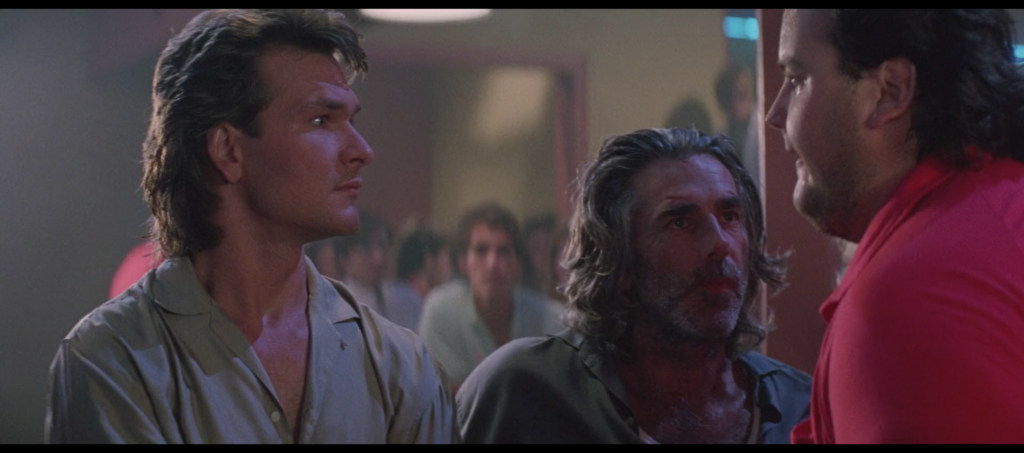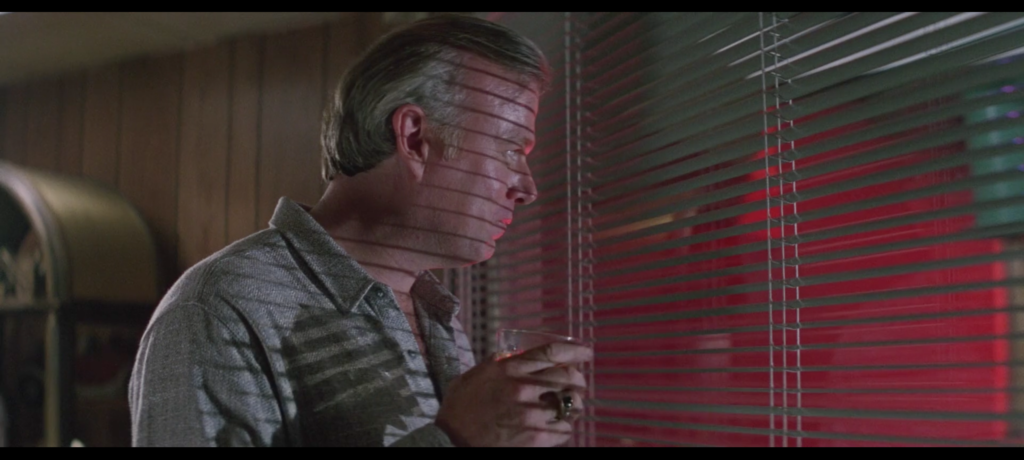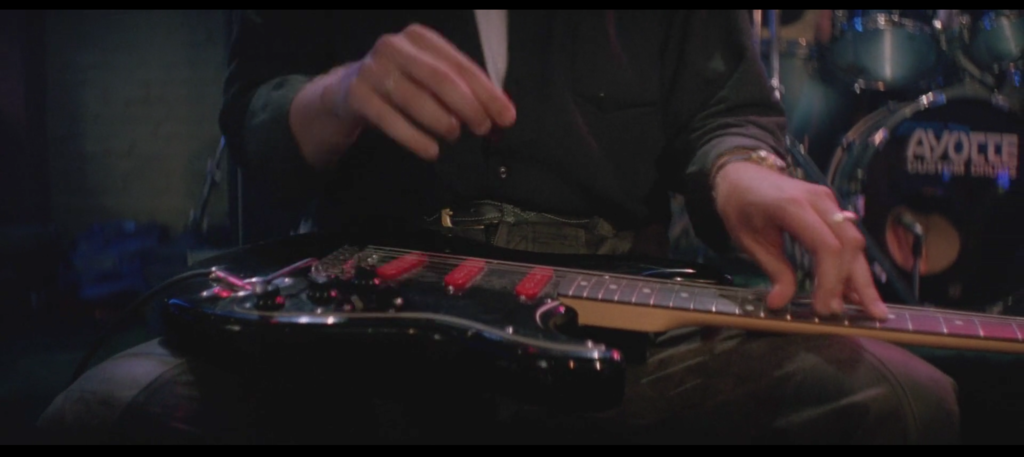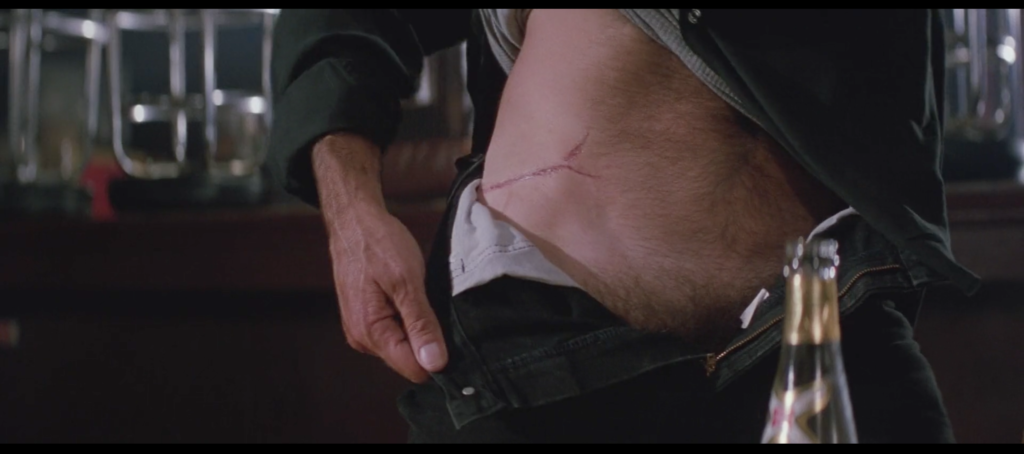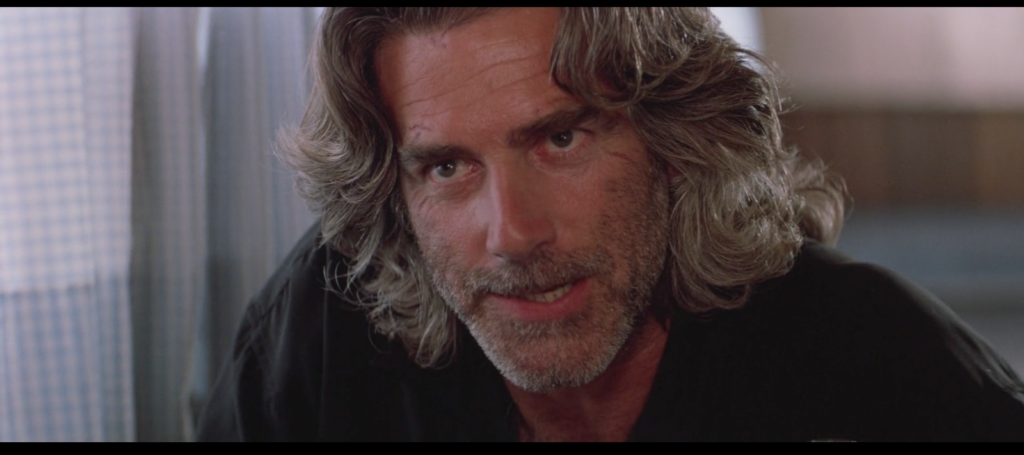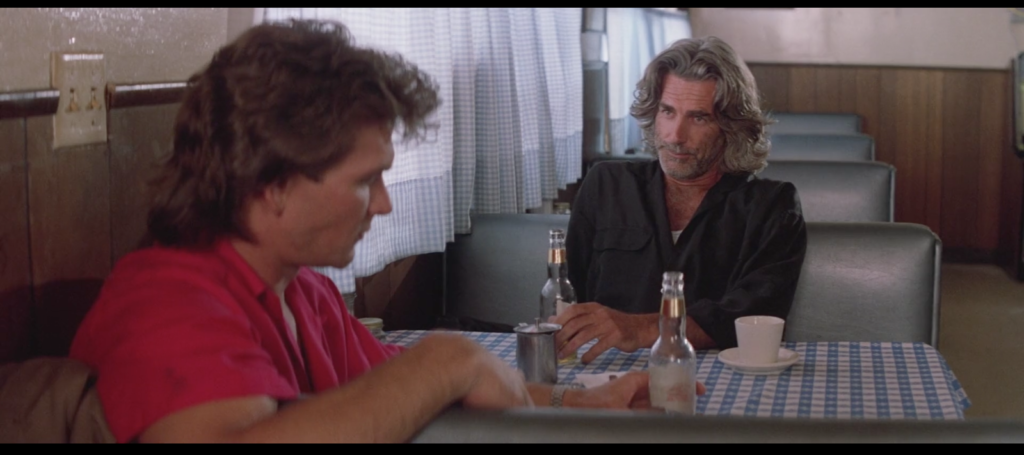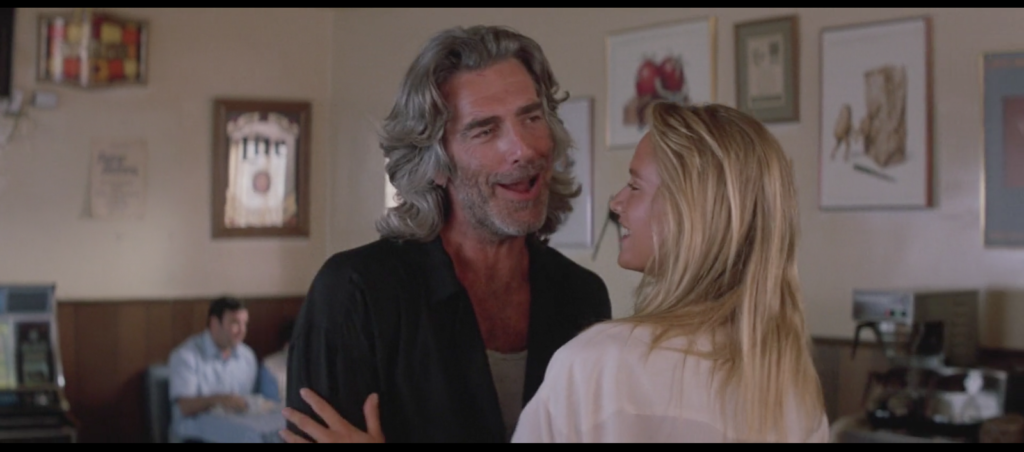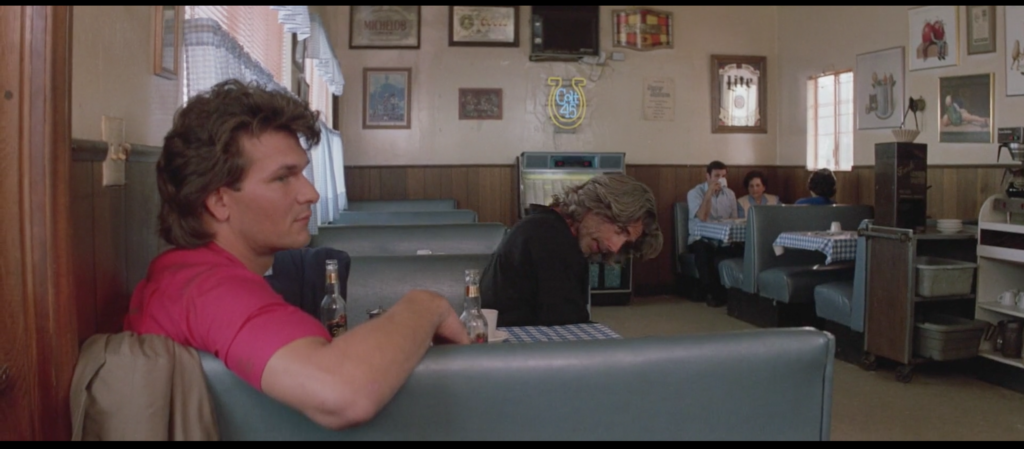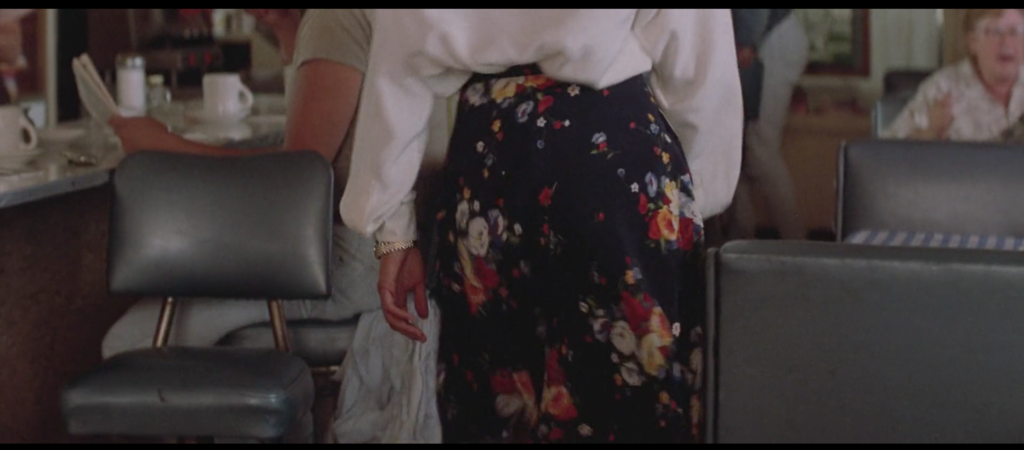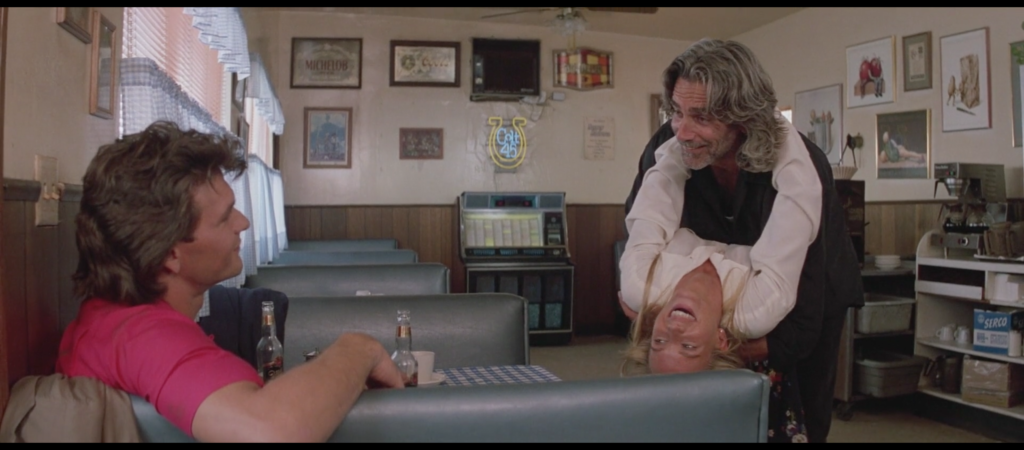
It’s morning, and Dalton, Wade, and Elizabeth are drinking beer and coffee at their second dive of the…night? Because they’ve stayed up drinking till dawn at at least two establishments that we know of, three if you count Dalton and Wade’s initial meeting at the Double Deuce. None of these three dives, it should be noted, are the dive to which Dalton took Doc on their earlier date. Jasper is a town consisting solely of auto dealerships and greasy spoons. I wonder what their Chamber of Commerce meetings are like.
Anyway it’s morning, because seconds after exposing his bush to Elizabeth, Wade insists on going someplace “more romantic” to dance, and everyone likes dancing up and down the aisle at a diner, ordering beers at like 7am amid the breakfast crowd, right?
Wade and Elizabeth do, that’s for goddamn sure. They do a jaunty two-step to George Strait’s “All My Ex’s Live in Texas,” complete with a reedy little singalong of the title phrase from Wade. He spends pretty much the entire time purring at the Doc. No, he won’t be telling her how great a guy Dalton is, he’ll tell her “how I want you for myself” instead. He’ll make fun of his yawning protégé’s staying power: “He’s great comin’ out of the gate, but not much for stamina.” He’ll put his hand in Doc’s golden hair, the other on her back, and they’re real close together now, no room for the Holy Spirit between these two. And in the end they press their hips together, hips being used euphemistically here, as he dips her so low she’s upside down, and they look at Dalton and they laugh, because it’s funny, isn’t it? It’s funny to just really really really clearly want to fuck your best friend’s girlfriend, and funnier still that she clearly wants to fuck you, and funniest of all that neither of you give a fuck that your best friend/boyfriend sees it all. You have to make your own fun in this town.


